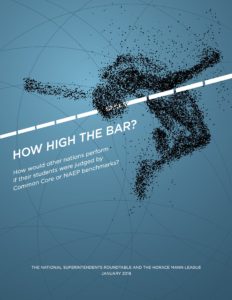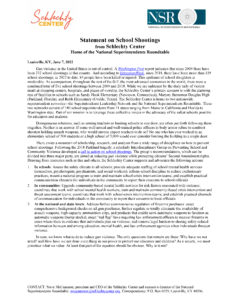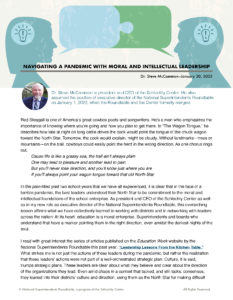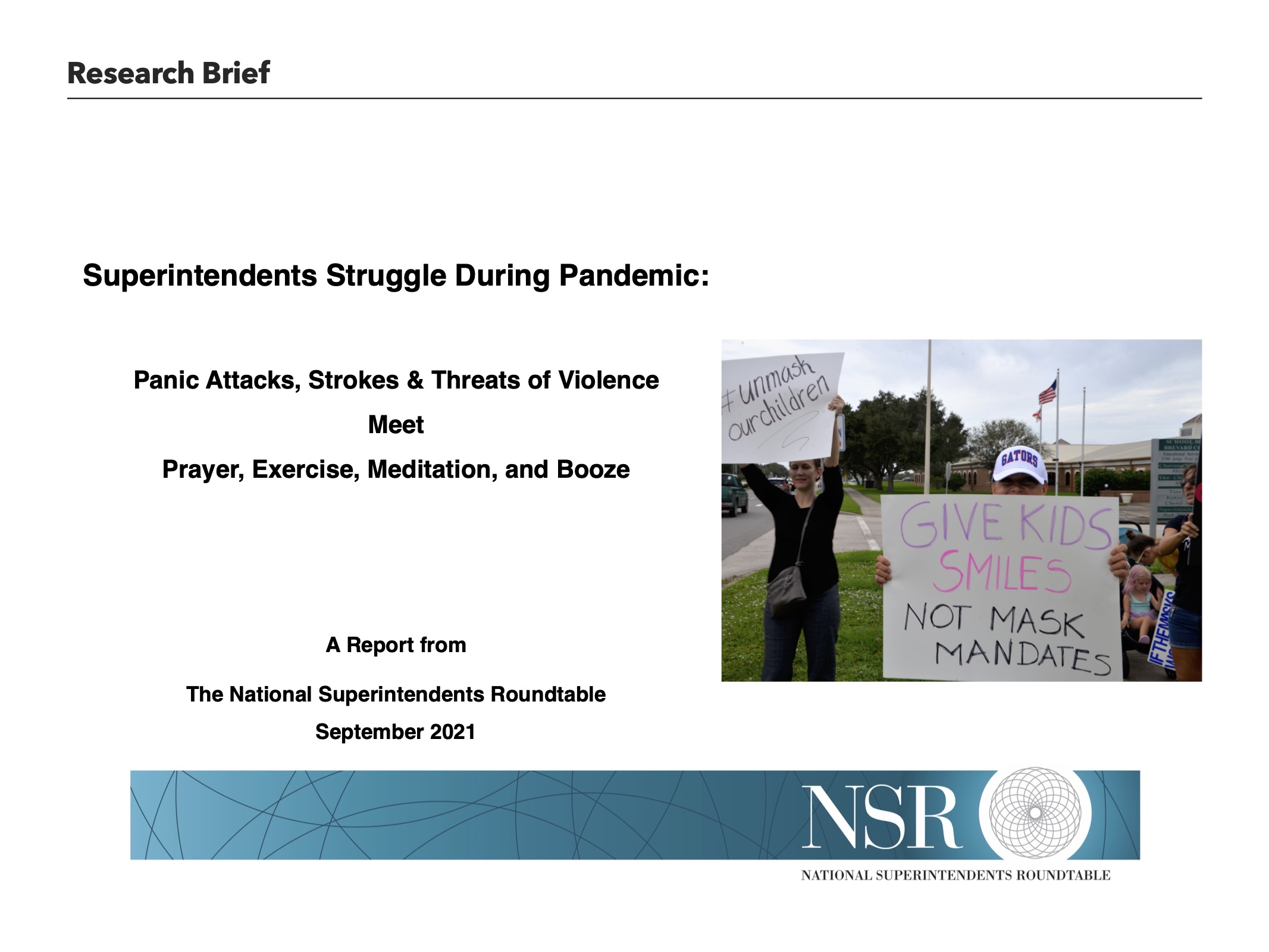
How High the Bar? is a joint project of the National Superintendents Roundtable and the Horace Mann League. The report sheds light on common school accountability benchmarks in the United States, asking how well students in other nations would perform if they were held to the benchmark of “proficient” in the National Assessment of Educational Progress or to Common Core measures of “career and college readiness.”
This report makes a genuine new contribution to the school reform discussion. How High the Bar? raises a number of issues and questions that call for a renewed, open dialogue about college and career readiness expectations and how to best determine whether our children and youth meet those expectations. This dialogue is overdue.
— Johan Uvin, President, Institute for Educational Leadership
Download an executive summary of the report.
Request a hard copy of the report from nicole@superintendentsforum.org.
Brief Summary of Findings
The report, released in January, concludes that the vast majority of students in most countries cannot demonstrate proficiency as defined by the National Assessment of Educational Progress and most Common Core tests. The authors of the analysis suggest the U.S. has established benchmarks that are neither useful nor credible.
In How High the Bar?, the authors linked the performance of foreign students on international tests of reading, mathematics, and science to the proficiency benchmarks of the National Assessment of Educational Progress (NAEP), the United States’ longest continuing assessment of students. They also examined major assessments related to the Common Core.
The report concludes that very few students in most nations would clear the NAEP proficiency bar the U.S. has set for itself in reading, math, and science.
A Video Introduction to the Report:
Copyright © 2018 Naional Superintendents Roundtable. All rights reserved. Reproduction or distribution, in whole or in part, of this publication, including the PDF, by any means—mechanical, digital, electronic, photocopy, or otherwise—is prohibited without the prior written permission of the publisher.
Reviews: What Educators are Saying About How High the Bar?
Bravo! How High the Bar? is very good. It’s very technical. And it sure is needed. The report seems to have applied the equating procedures fairly, and the results speak for themselves. I also like the coverage of PARCC and SBAC. That was unexpected and quite fascinating in itself.
— David Berliner, Regents’ Professor Emeritus, Arizona State University; former president, American Educational Research Association
Education standards should be rigorous, but they also must be reasonable. The NAEP standard for “proficient” is too high, especially when misconstrued to mean performing on grade level or on track for college readiness. In every country on the planet—including Finland, Japan, and Korea—vast numbers of students would be considered academic failures under the proficient standard. Kudos to the National Superintendents Roundtable and the Horace Mann League for informing the public on this important topic.
— Tom Loveless, former director, the Brown Center, Brookings Institution and non-resident Senior Fellow, Brookings Institution
There’s a very important statement in this report. And that is that the fault lies not in the students, not in the schools, not in the Common Core, nor even in the assessments themselves. It’s the flawed benchmarks that are the problem.
— Carla Santorno, Superintendent, Tacoma, Washington
Too often in the United States, assessment data are used not to inform or improve public schooling but to hold schools to account or, worse, to penalize them. School accountability systems frequently are based on flawed benchmarks that lead to erroneous conclusions and, as this report notes, that portray our public schools in a misleadingly negative light. ESSA, the federal education law, frees us to define success for students and schools more appropriately, and the guidance and recommendations in this report will likewise help education officials use assessments to benchmark more constructively.
— Randi Weingarten, President, American Federation of Teachers
This report is thoughtful and provocative. It lands at an appropriate moment, a time when many forward thinking educators are taking advantage of provisions in ESSA to rethink testing and assessment. These efforts will fail unless we also re-examine the standards, which this valuable reports does, in clear fashion.
— John Merrow, former Chief Education Correspondent, PBS





